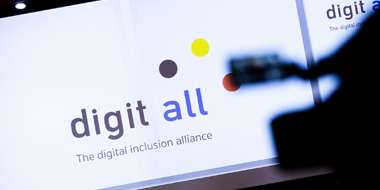Data & AI
Smarter data handling in the public sector for better information access and citizen experiences
18/05/2021 | Written by: Rob Nijman, Peter Den Haan, and Joan Van Loon
Categorized: Data & AI | Government
Share this post:
Improved accountability. Increased citizen trust. More optimal working processes. Guaranteed compliance with regulations. Easier search functionality. It’s clear that good data and information management in the public sector results in a multitude of benefits. However, this isn’t always straightforward to implement. Especially when you consider that this isn’t just a technological change, but also a business, political, and policy transformation. In this blog and the upcoming IBM Data and AI Academy event we will be looking at smarter data handling for the public sector.
Smarter data handling in the public sector
When it comes to data and information management, the public sector is facing a combination of issues:
- Digital information management
Digital information management covers the storage, management, availability, and accessibility of a wide range of data within an organization, including the public sector. This data can take many forms, from letters, emails, and legislative documents to photographs, videos, and illustrations. For daily operations, the availability and accessibility of this data is of vital importance. A combination of automation and AI will ensure it is managed so that the right documents are available at the right time and in the right form in each work process for each appropriate user.
- Relevance of information
After various data forms have been identified, there is the question of relevance. Is this data relevant for you? Your citizens? Your colleagues? Your political rivals? As citizens, journalists, and other politicians expect data to be increasingly stored and searchable, the decision about what should be archived or discarded becomes political. As well as the relevance of data, the public sector needs to consider how long data should be stored before it is no longer relevant or potentially causes a conflict with data protection laws.
- Availability of existing information in a digital format
Digitalization of older data sources can take time, and the level of digitalization at some public offices is more mature than at others. This means requests for information at some public offices is smooth and quick, with the data request inputted into the system and automated systems ensuring that all relevant results appear quickly. However, other public offices have to manually find and collect the necessary data, which takes longer and runs a higher risk of relevant data being missing.
- Right to information
Right to information laws in the Benelux empower citizens and journalists to demand accountability from elected officials and local authorities. This means that in response to requests for information, public officials need to promptly provide a complete, appropriate, and relevant answer. This is a relatively straightforward exercise when data has been digitalized and stored using smarter data handling solution that includes AI and automation. However, when data is either not digitalized or stored in an unorganized way, this can be a time-consuming exercise for all involved.
- Data security
The threat of hacking and data leaks should not be underestimated as it can lead to the loss of access to data, information theft, and the loss of citizen trust. Security is an integral part of any data and information management system.
- The impact of COVID
COVID-19 has an undeniable impact on all of us. Health concerns have accelerated the move towards digital interactions between citizens and the public sector, as citizens become more comfortable making requests, accessing data, and starting processes digitally instead of via in-person appointments. This has increased the pressure on the public sector to provide digital services supported by data and information handling capabilities.
However, the introduction of chatbots has helped to relieve some of this pressure. Chatbots provide smarter and more efficient interaction with citizens without the restrictions of set working hours or the availability of trained and experienced staff members.
IBM virtual event: smarter document handling in the public sector
As we have seen, automation and AI can be utilized to ensure smarter data handling for the public sector. They are also key for public authorities who wish to develop a modern and secure infrastructure that empowers them to digitally reinvent themselves, tool themselves for their future workforce, and create an improved citizen experience.
Discover how IBM can help you with smarter document handling at the upcoming Benelux virtual event form the IBM Data and AI Academy. This exclusive event will bring together industry experts and data specialists from the public sector for virtual discussions, keynote talks, and learning groups.

Client Relationship Executive for Central Government, IBM

Technical Sales Manager Data & AI, IBM

BeLux Enterprise Unit Leader Public, Life Sciences, Telco & Utilities, IBM
IBM, together with 30 organizations, signs the Digital Inclusion Charter
“I personally believe that inclusion is a basic human right and should be part of the DNA of every leader. Since a long time, inclusion is one of the core values of IBM. The Digital Inclusion Alliance is for me a great initiative, where we can turn our values into action. We’re all in this […]
What is human-centred AI and why is it important?
Artificial Intelligence (AI) has the potential to solve many of the most difficult problems of today and tomorrow, impacting every aspect of our lives. Most people are likely to agree that AI should be used to solve problems and make (all) humans more prosperous and healthier. Actually, achieving this is easier said than done, […]
Dutch Ministry of Defense signs contract for modern and flexible IT
State Secretary Barbara Visser of Defense signed a contract with IBM, on behalf of the market consortium Athena (IBM/Atos/ Unica) to start in 2021 with the realization of a renewed, future-proof IT infrastructure. Focus will be on the IT infrastructure-parts that have the most added value for operational actions. The Ministry of Defense service […]


